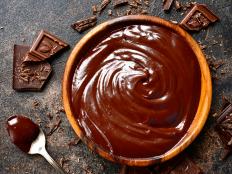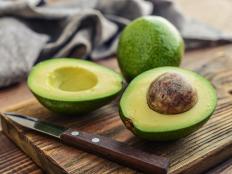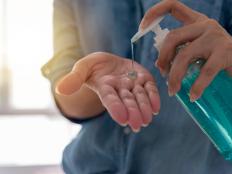New Study Finds 95% of Tested Baby Food Contains Toxic Metals
Here’s what parents need to know before feeding their babies.


JGI/Jamie Grill
When your baby starts eating solids, you try to feed them a variety of foods that are nutritious and taste good. However, a new study revealed there is a good chance that the food you have stocked in your pantry contains traces of toxic metal that can be dangerous to your baby’s brain development.
According to a new study published by the nonprofit Healthy Babies Bright Future, you may not know everything that is in a jar of baby food or a bottle of formula. For the study, researchers tested 168 different baby foods for the presence of four heavy metals: arsenic, lead, mercury and cadmium. They looked at 161 different brands and 13 different types of foods including infant formula, teething biscuits and cereals.
The results are shocking; 95 percent of baby foods tested were contaminated with at least one of the heavy metals. Researchers found 73 percent of the baby food contained arsenic, 75 percent contained cadmium and 32 percent contained mercury. Even more terrifying, one in four of the baby foods tested contained all four of the heavy metals. Only nine types of baby food tested had no trace of any of the four metals.
The foods with the highest levels of heavy metals were rice cereals, puff snacks, sweet potatoes, carrots and fruit juices. According to the study, heavy metal exposure may contribute to ADHD, while arsenic, cadmium and lead are known carcinogens.
“Even in the trace amounts found in food, these contaminants can alter the developing brain and erode a child’s IQ,” researchers from the study wrote. “The impacts add up with each meal or snack a baby eats.”
Obviously, this study has sounded alarms for parents and with good reason. “Babies and toddlers are particularly vulnerable due to their smaller size and developing brains and organ systems,” said James E. Rogers, who is the director of food safety research and testing at Consumer Reports.“They also absorb more of the heavy metals that get into their bodies than adults do.”
So, what can parents do with this information? While eliminating metals from your baby’s food may not be possible—even if you buy organic or make your own–there are a few steps you can take to reduce their consumption.
- Add a variety of food to your baby’s diet from the beginning. There is no need to wait days in between trying new foods unless there is an allergy concern in the family.
- Skip feeding your baby or toddler rice-based cereals and snacks. Instead choose brown rice options or white rice products made in the United States.
- Don’t offer fruit juices.
- Offer whole foods over prepacked versions of apples, applesauce (unsweetened), avocados, bananas, beans, peaches, strawberries and yogurt.
- When giving your child root veggies like sweet potatoes and carrots, opt for a mixture or medley of veggies so that the levels of metal are much lower.















